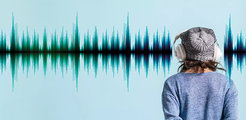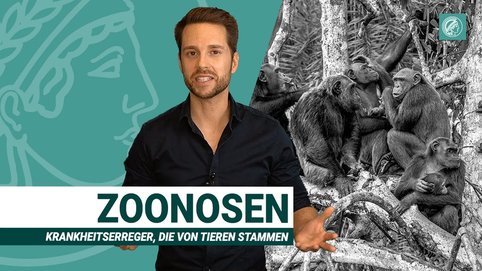Max Planck Videos & Podcasts
Audio and video productions by the Max Planck Society
The Max Planck Society creates films and audio contributions on current research topics to make research visible and hearable.
WISSEN WAS
The Max Planck Society, together with the YouTubers MrWissen2go and Doktor Whatson, launched its new series of explanatory videos WISSEN WAS on YouTube in early 2020. The series is only available in German.
The main goal of the video series WISSEN WAS is knowledge transfer and neutral, topic-related reporting on current subjects, underpinned by the most recent scientific facts. The hosts and Youtubers Mirco Drotschmann (MrWissen2go) and Cedric Engels (Doctor Whatson) present in each video crucial and necessary information on the respective topic. In interviews with Max Planck researchers and other experts, they explain how the findings and facts presented are obtained and scientifically proven. To this end, the hosts visit Max Planck Institute institutes to report on topics such as zoonoses, nudging, or migration.
WISSEN WAS
Max Planck Cinema
Are you interested in science? The film series “Max Planck Cinema” shows projects from the basic research program of the MPG. The short films serve as "introductory films" into the various fields of basic research carried out at the various Max Planck Institutes.
Epigenetics - Packaging art in the cell
With the help of lab footage and interviews, the films aim to make the scientists and their research visible. At the same time, however, elaborate animations are used to explain the core of the complex research topics vividly way by using entertaining real-life analogies. The films serve as a starting point for schoolchildren or interested laypersons to learn more about Max Planck research and get enthusiastic about science at the Max Planck Institutes. The series has also produced episodes in collaboration with the MPI-IE: The education of T Cells & Epigenetics - Packaging art in the cell.
Max Planck Cinema
Max Planck Podcasts

With the podcasts of the Max Planck Society, it is literally possible to listen to science. In cooperation with the online radio station detektor.fm, the Max Planck Society regularly produces episodes of the “Forschungsquartett” podcast. The episodes are available on Apple Podcasts, Deezer, Google Podcasts, Spotify, or via RSS in every podcast app. A second format is the “Echt nobel” podcast, which presents the MPG’s Nobel Prize laureates. In addition, a couple of Max Planck Institutes regularly produce podcasts that are worth discovering. Find all podcast episodes featuring Max Planck researchers on the MPG website.







